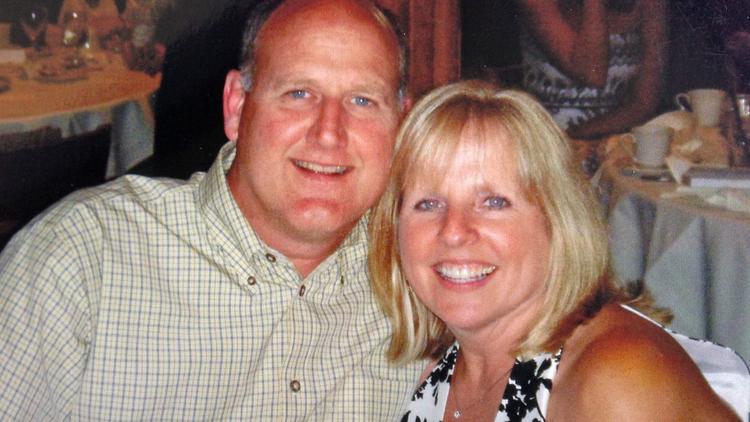A new trial was just granted to our client Theresa Bigler in her wrongful-death lawsuit against Olympus Corporation on behalf of her husband Richard Bigler, who died from a superbug infection linked to an Olympus TJF-Q180V duodenoscope.
King County Superior Court Judge Steve Rosen found that Olympus concealed key evidence showing it knew its medical scopes had safety issues years before the devices were connected to superbug outbreaks and deaths around the world.
Read the full press release below.
JUDGE GRANTS NEW TRIAL FOR SEATTLE’S BIGLER FAMILY V. OLYMPUS, FINDING DEVICE MAKER CONCEALED KEY DOCUMENTS, ACCORDING TO LUVERA LAW FIRM
Eleventh-hour admission by Olympus representative led Biglers’ team to the proverbial ‘smoking gun’ of previously undisclosed documents
SEATTLE – A King County court has granted a new trial for the family of Rick Bigler in the wrongful-death case against Olympus Corporation (OTCMKTS:OCPNY), finding that during a first trial Olympus concealed key evidence showing it knew its medical scopes had safety issues years before the devices were connected to dozens of superbug outbreaks and numerous deaths around the world.
In addition to a new trial, Olympus must pay Bigler’s family $250,000 and cover all of their attorneys’ fees and costs to bring new Consumer Protection Act and punitive damages claims against the device maker. The order was signed by King County Superior Court Judge Steve Rosen on January 16, 2018.
“All we wanted from the start was a fair and full trial, but Olympus turned it into a game of hide-and-seek,” said David Beninger of Luvera Law Firm, the attorney representing the Bigler family. “Unfortunately, not only was Olympus’ behavior ethically improper, it also was illegal, violating Washington’s legal discovery rules – and now the company has been dealt a punishment that fits its crime.”
The court found that Olympus failed to meet its discovery obligations to disclose documents and witnesses in response to specific questions from the opposing counsel – a standard established by Washington State Physicians Insurance Exchange v. Fisons Corp., a historic case that Beninger and his partners handled nearly 25 years ago.
“We’re pleased to have another opportunity to hold Olympus fully accountable for Rick’s death, and the harm it caused our family and so many others,” said Theresa Bigler, Rick Bigler’s widow. “But the way Olympus put my family through the pain of a seven-week trial when it knew it wasn’t playing by the rules, not to mention wasting the court and jury’s time, is absolutely unthinkable.”
DEADLY SUPERBUG OUTBREAKS
Rick Bigler, of Woodway, Washington, died in 2013 after contracting a fatal infection from a duodenoscope manufactured by Olympus with a known design issue that made it impossible to consistently clean and disinfect, according to court documents.
He was one of dozens of patients infected in a superbug outbreak at Virginia Mason Medical Center (VMMC) in Seattle. Olympus scopes have been linked to more than 41 outbreaks worldwide, which infected hundreds of patients and led to numerous serious injuries and deaths.
INITIAL TRIAL AGAINST OLYMPUS
In June 2017, the Bigler family went to trial against Olympus, claiming the company began selling its TJF-Q180V duodenoscope without gaining required FDA approval, conducting adequate safety testing, or properly warning U.S. doctors about the risks of cross-contamination and history of superbug outbreaks.
During the trial, the Bigler family’s attorneys found limited internal corporate documents indicating that Tokyo-based Olympus Medical Systems Corp. and its American counterparts, Olympus America Inc. and Olympus Corp. of the Americas, knew the scope’s design prevented medical providers from adequately cleaning and disinfecting the device.
“We had a few pieces of the puzzle that gave a strong indication of Olympus’ sales-before-safety mindset, but we realize now that Olympus tried to rig the system so we, and the jury, could not see the complete picture,” Beninger said.
According to court documents, a key piece of Olympus’ defense was that its scope design didn’t require clinical validation research or FDA approval before it went to market, because it didn’t substantially differ from an existing scope model that had already been FDA-approved.
“We had medical experts on the stand saying how outrageous it was that Olympus didn’t perform real-world studies in hospitals, and after a while, Olympus got tired of being beaten up over that,” Beninger said. “So, after seven weeks of testimony, at the eleventh hour of the trial, an Olympus representative testified for the very first time that they had, in fact, performed clinical validation studies, and they thought they could get away with saying it out loud because we wouldn’t have time to follow up.”
In fact, attorneys were not able to examine the documents and their authors before the trial ended. Afterwards, the documents told a different story that supported the Biglers’ claims.
A jury awarded the Biglers $1 million in compensatory damages for Rick Bigler’s death, but ruled against the plaintiffs’ claims that Olympus had violated the Consumer Protection Act, or that the company was liable for punitive damages meant to financially enforce safety improvements.
TRIAL CONCLUDES, INVESTIGATION BEGINS
The new disclosure led to new information. With just the new name of one researcher from Olympus’ Japanese operations, the Luvera Law Firm team began poring over the reams of untranslated documents. There, buried in 300,000 documents and written in Japanese, it found damning results from clinical testing at 17 hospitals, and emails between undisclosed decision-makers.
For example, in one 2008 email exchange later filed with the court, Olympus decision-makers discussed significant safety issues raised by clinicians conducting the research, and that a specialized brush must be introduced to clean the scope – a brush that was mandated years later, only after outbreaks and the death of Mr. Bigler. The Olympus employees resisted addressing cleaning and brush issues before taking the scope to market:
“… there will be man-hours for the scope side in terms of manual development, product standards and regulations (filings), etc. when the brush is commercialized. I don’t want to have the risk of delaying the scope due to problems with the brush or a need to revise the specs.”
They concluded, “…there is no time.”
Within months after the first trial, the Biglers’ legal team had compiled enough evidence to successfully argue for a new trial.
“The evidence we’ve found so far is just the tip of the iceberg,” Beninger said. “Olympus tried to conceal key documents and keep key witnesses away from us, but with a new and fair trial, we’re going to pull this thread to the end and watch its case unravel.”







